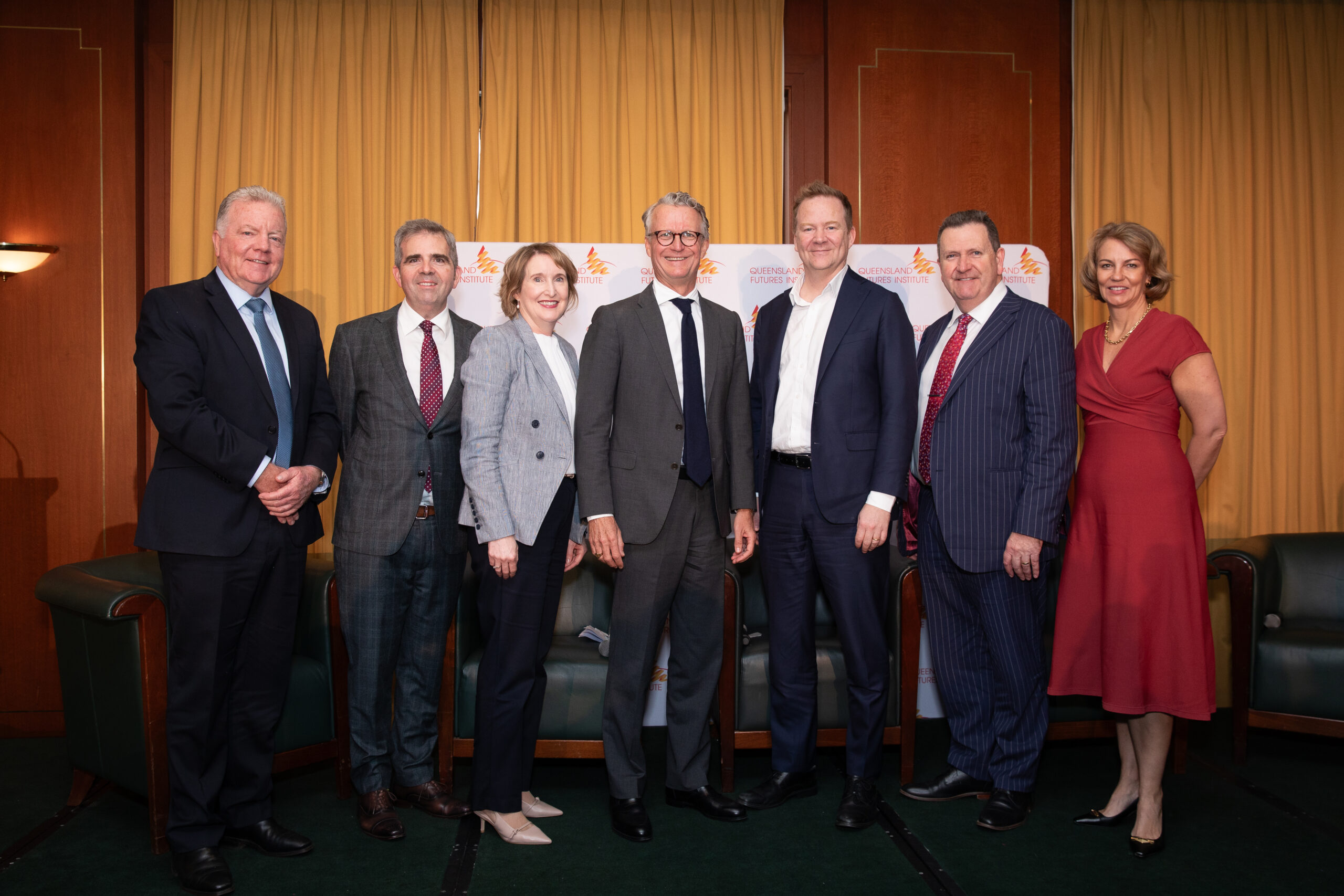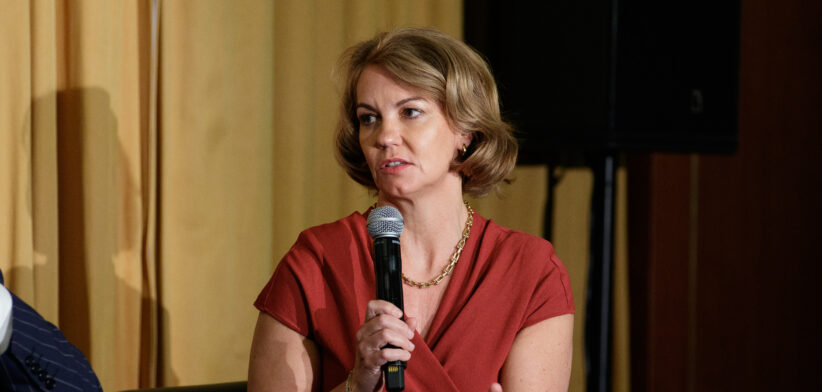Australia is facing the prospect of childless suburbs as the housing affordability crisis creates an unprecedented intergenerational divide.
This is happening in a world where divisions are on the rise and the international norms that once kept conflict in check are breaking down.
Speakers at a Queensland Futures Institute Economic Outlook leaders’ forum pointed to growing social and economic challenges that required different ways of thinking.
Barrenjoey Capital Partners Chief Economist Jo Masters said the Federal Government’s recent economic roundtable had helped to start a conversation on tax reform to address intergenerational inequality.
“What do we want for our children and grandchildren?” she asked.
“You will hear economists often say that if we don’t change anything in this country we will be the first generation to leave our children and grandchildren with a lower standard of living. That’s a pretty shocking conclusion.
“I live in Sydney. We talk about suburbs that are childless. My grandchildren will not live in the same city I live in. They will not be able to.”
Ms Masters said this intergenerational divide was one of the biggest social issues in Australia and was playing out in domestic unrest and in election debates and outcomes.
She said addressing this issue could mean taxing wealth more and taxing income less. It would also mean moving past a mindset that nobody could be worse off under tax reforms.
Director of the KPMG Geopolitics Hub Jon Berry said one of the “flashpoints” in Australia was pent-up resentment about living standards.
This was made worse by an information environment where different groups could be working off a completely different set of “facts”.
“In that environment when there’s a trigger overseas like the Gaza conflict it can really light the fuse back in Australia,” Mr Berry said.
He said there was no longer “an operating system of international norms” that acted as a natural brake on conflict.
Political risk company, Eurasia, had coined the notion of a G-Zero world (no longer G20 or G8) where there was no one country willing and able to “backstop the international rules of the game”.
“What that means is that when the teacher is out of the room everybody in the room, if they think they can improve their lot, their position, (will believe) it’s a great time to stake their claim,” he said.
“So we’re seeing countries and also nonstate groups press their claims in many parts of the world.”
ANZ Chief Economist Richard Yetsenga told the forum that one major insurer had traditionally advised clients that about 30 percent of their business risks were insurable. That number had now fallen to 10 percent.
“There is unquestionably a higher level of uncertainty over risk which is more difficult to manage in many ways,” he said. “It also means we have to give more thought to how we manage the unconventional risks.”
Mr Yetsenga said, despite all of the global uncertainty, there was still plenty of upside. The world economy was still growing at about 3 percent annually and Australia was well placed to capitalise on this growth.
Queensland Productivity Commission Commissioner Karen Hooper said one of the big challenges for this state was the “sobering” metrics around construction productivity.
She said the figures suggested productivity in the Queensland construction industry had grown around five percent over the past 30 years while other industries grew 65 percent.
Even more concerning was an apparent 9 percent drop in productivity in that industry since 2018.
“What that actually means is that we have got less productive capacity to deliver the houses and infrastructure that we as a state need,” Dr Hooper said.
“If we had maintained productivity at 2018 levels, Queensland could have delivered an extra 77,000 dwellings. That would have made a real different in terms of housing supply and affordability.”









